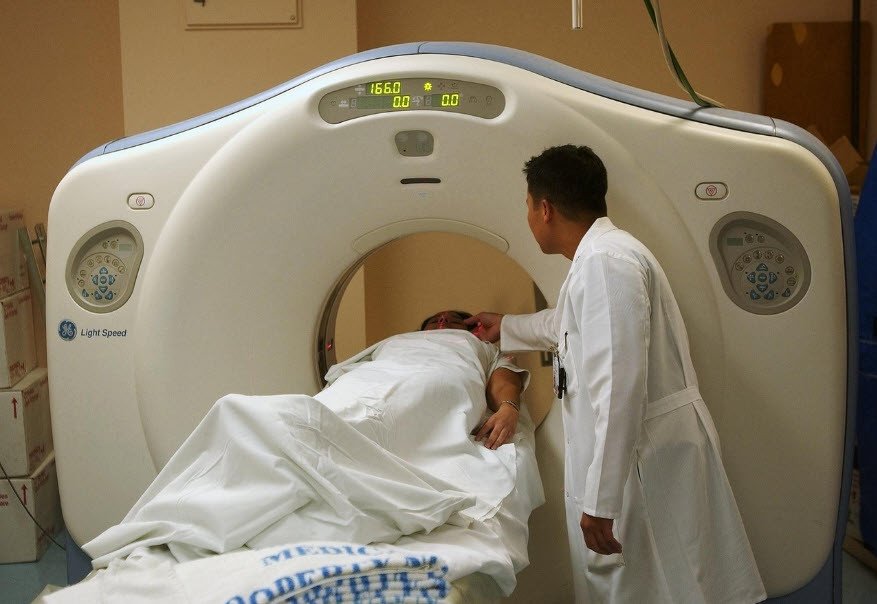Understanding Cancer Symptoms
Cancer symptoms vary widely depending on the type, location, and stage of disease. While many symptoms can have benign causes, recognizing potential warning signs is crucial for early detection when treatment is most effective.
Recognizing early symptoms often requires paying close attention to your body and noting any changes that are unusual for you. Some indicators, such as unexplained weight loss, fatigue, or persistent pain, can be subtle yet significant. Being aware of your normal health baseline helps you identify when something isn't right.
Additionally, certain warning signs are more specific to particular cancers; for example, unusual bleeding may signal uterine or gastrointestinal cancers, while changes in skin moles can indicate melanoma. If you notice any persistent or new symptoms that concern you, consulting a healthcare professional promptly is essential. Early diagnosis can dramatically improve treatment options and outcomes, so listening to your body's signals and seeking timely medical advice can make all the difference.
General Cancer Symptoms
- Unexplained weight loss: Losing 10+ pounds without trying
- Fatigue: Persistent exhaustion not relieved by rest
- Pain: Persistent pain without obvious cause
- Fever: Frequent or persistent fevers, often at night
- Skin changes: Darkening, yellowing, or reddened skin
Site-Specific Warning Signs
Breast Changes
- New lump or thickening
- Nipple changes or discharge
- Skin dimpling or redness
Digestive System
- Persistent indigestion or difficulty swallowing
- Changes in bowel habits lasting weeks
- Rectal bleeding or blood in stool
Respiratory System
- Persistent cough or hoarseness
- Coughing up blood
- Shortness of breath
Urinary System
- Blood in urine
- Changes in bladder habits
- Persistent pelvic pain
Skin Changes
- New mole or changes to existing moles (ABCDE rule)
- Sores that don't heal
- Unusual bleeding or scaling
When to See a Doctor re Cancer Symptoms
- Symptoms persist for more than 2 weeks
- Symptoms worsen over time
- No obvious explanation for symptoms
- You have risk factors for specific cancers
- Your intuition tells you something's wrong
Diagnostic Process for Cancer Symptoms
- Medical history review
- Physical examination
- Blood tests (tumor markers, CBC)
- Imaging tests (X-ray, CT, MRI, PET)
- Biopsy procedures
Frequently Asked Questions
Q: How can I tell if my symptoms are cancer or something less serious?
A: While most symptoms have benign causes, persistent or worsening symptoms lasting 2+ weeks should be evaluated. Your doctor can assess your specific risk factors.
Q: Do all cancers show early symptoms?
A: No, some cancers are "silent" until advanced stages. This is why screening tests are important for at-risk individuals even without symptoms.
Q: Can blood tests detect cancer?
A: While routine blood tests can show abnormalities, they rarely diagnose cancer alone. Specific tumor markers may suggest certain cancers but require confirmation with imaging or biopsy.
Q: Should I be worried about every ache or pain?
A: Occasional aches are normal. Be concerned about persistent (lasting weeks), progressive, or severe pain without explanation, especially with other symptoms.
Q: How accurate are online cancer symptom checkers for cancer?
A: Online tools can provide general information but often overestimate cancer risk. They're no substitute for professional medical evaluation.
Importance of Early Detection
- Early-stage cancers are often more treatable
- More treatment options available
- Generally better outcomes
- Lower treatment costs
- Better quality of life during treatment
Key Takeaways
- Know your body and report persistent changes
- Many symptoms have benign causes but warrant evaluation
- Early detection significantly improves outcomes
- Follow recommended screening guidelines for your age/risk
- Trust your instincts - if concerned, get checked
The content of this post is provided for informational purposes only. It is essential to consult with a qualified healthcare professional before making any decisions regarding your health or wellness. The author is not a licensed medical professional, and this information should not be considered medical advice.
Have you ever caught a health issue early because you noticed subtle symptoms? Share your experience in the comments below.
If you require any assistance with this article, please do not hesitate to Contact Us












